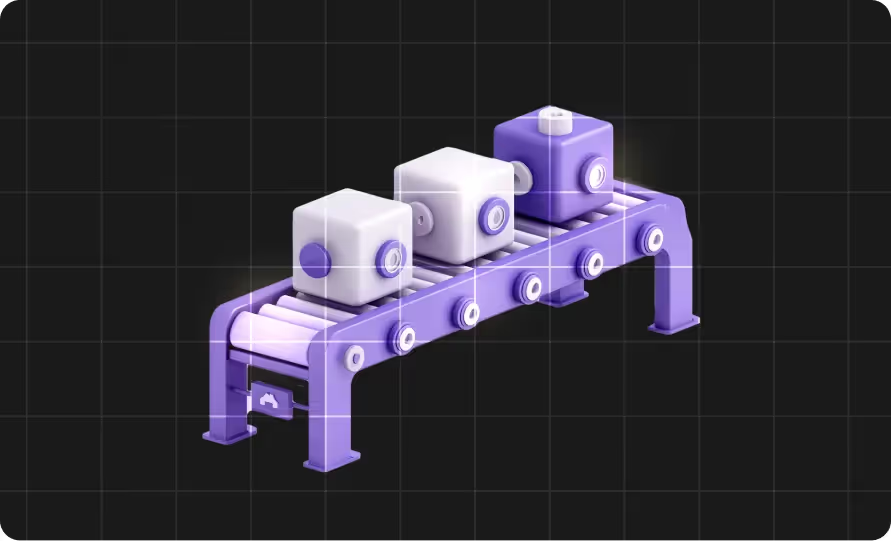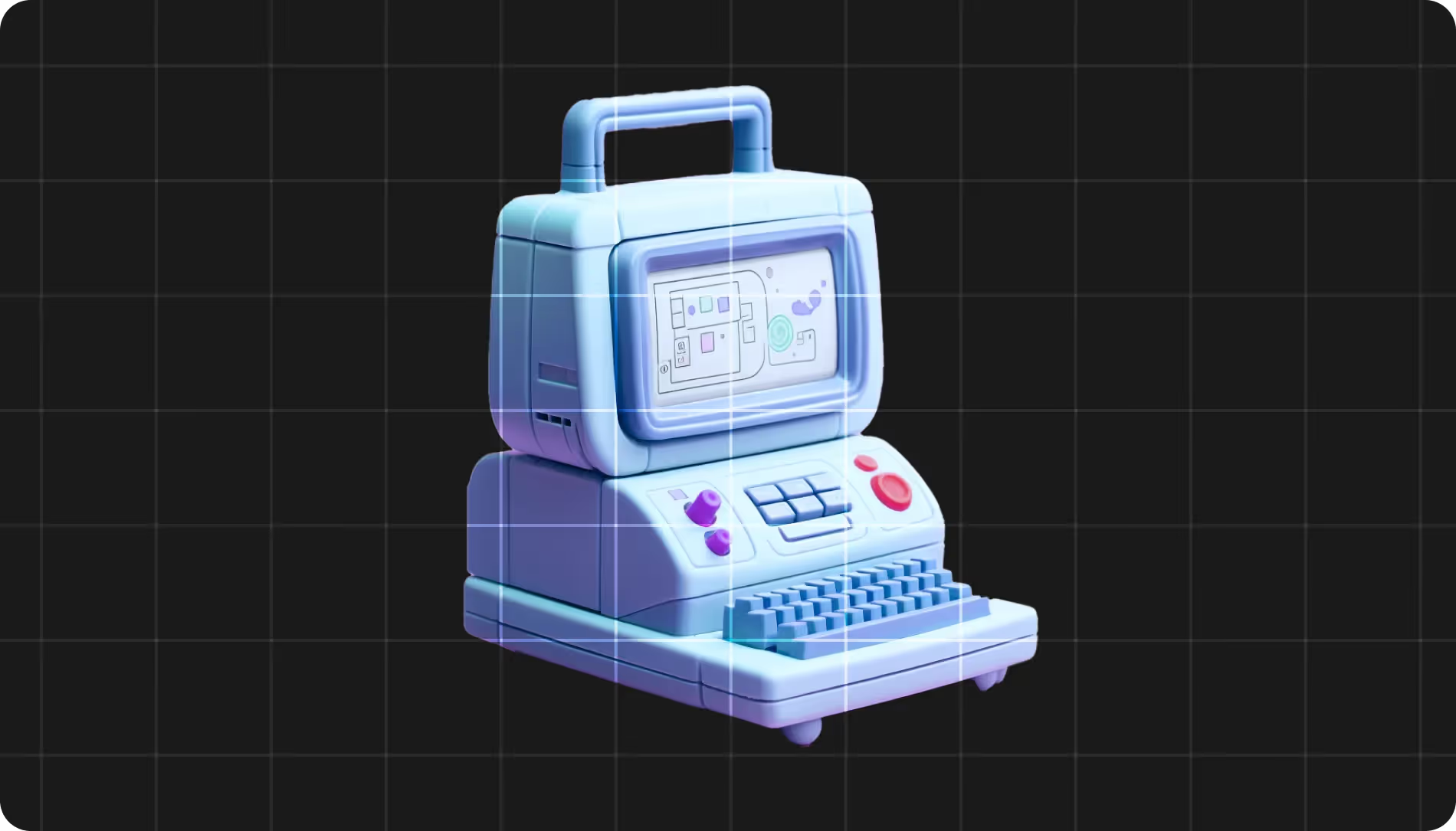“A career change at 50 is impossible!” they say. “It’s too late! You’ve missed your chance!” Cynicism abounds, but the actual reality shows that changing careers at 50 is absolutely possible. Not only that, but if your long career has revealed new professional values to you, you can harness them to guide your choices. See, the modern labor market is different from what it once was, and the stats back this up:
- 69% of adults between 50 and 64 are employed.
- A third of people in their 50s said that the pandemic spurred them to reprioritize work-life balance, and 62 percent said it led them to take a new look at how their job fits their lives.
- The 6% of workers between the ages of 55 and 64 who make the career switch achieve better work flexibility and mental health outcomes.
But what are the best career change jobs at 50? And what are the steps you can take to land them?
We’ve got you covered. Dive in.
8 new careers in tech to start at 50
Starting a new career at 50 can be daunting, so to start out, here’s a quick list of some of the best second careers after 50.
1. UX researcher
A UX (user experience) researcher is a tech organization’s way of sensing the world. IT companies want to make sure their digital products are as easy to use as possible — both by verifying that the product is being used properly and by surfacing potential improvements. Basically, you would be their way of knowing how well all of that is playing out.
Typical responsibilities include studying user behavior, conducting interviews, running usability tests, and reporting findings back to the team to help guide product design.
2. Cyber security analyst
The digital world houses data that needs to be kept safe. Companies now need to protect sensitive data such as addresses, social security numbers, and credit card information. Yeah, it’s no joke; all of that needs to be kept out of the hands of bad actors.
To keep our tech-inflected realities functioning safely, a cyber security analyst monitors digital systems, conducts cyber security audits, lends expertise to designing security policies, and teaches colleagues and users how to avoid data breaches.
3. Business analyst
Okay, so a company has deployed all these internal projects to increase revenue and efficiency. Great! Only — are any of them working? In comes the business analyst, a specialist in providing data-driven context to drive better decision making.
They define requirements, analyze data to improve how things are done at a company, map out those processes, and liaise with both tech and leadership teams to ensure organizations keep functioning as well as they can.
4. Quality assurance tester
You know when a product hasn’t gone through quality assurance (QA). In fact, you’ve probably used a poorly tested piece of tech fairly recently. Remember that time when that site started doing something completely unexpected? Or when that app just straight up didn’t work? Yup. They both needed some QA.
As a QA tester or QA engineer, you’ll test software and sites to uncover bugs, verify the functionality of tech, and communicate with the engineering team to help them improve the company’s products.
5. Data analyst
How well is that advertising campaign going? Did that recent product change lead to more or less usage? These are the sorts of questions that a data analyst might be asked to take on. While this position is similar to the business analyst listed above, it is somewhat broader, although the skills that form the basis of a business analysis career are likewise transferable to data analysis roles.
Typically, a data analyst’s tasks will involve using tools such as Excel, SQL, and Tableau to gather, clean, and analyze data to extract actionable insights. Then, they’ll present their findings to the requisite stakeholders.
6. Web developer
If you’re reading this, chances are you’re on a website right now (unless you printed this out, in which case we’re sorry the links don’t work). Someone made this website, just like most of the pages you visit every day. And it’s not just the pages, either; web developers can also be behind the interactive applications that make the sites fun or useful.
An online presence is crucial for companies nowadays, so having web developers that design, build, and maintain sites is a vital part of many companies’ strategies. One thing to note here is that, to do all this, a good grasp of languages such as HTML, CSS, JavaScript as well as frameworks will be necessary. (But hey, there are tech bootcamps for that).
7. Customer success manager
This role is often conflated with customer support, but while they’re both focused on helping customers use tech, they’re differentiated by how they help. Customer support is about fixing issues, whereas customer success managers are experts in explaining the tech itself from the get-go.
They help users get set up, staying in touch as they get familiar with the product. They also drive additional adoption of new products that might fit the specific needs of that customer better. Day-to-day, they’ll be the person between the tech team and the customer as they take on training, onboarding, liaising, and ensuring satisfaction.
8. Systems analyst
Computer systems have evolved at a crazy pace since they first gained widespread adoption in business. It is the job of a systems analyst to make sure these advances are helping improve a company’s computer systems. As tech gets more efficient, companies want to make sure they’re also getting more efficient, and a systems analyst is the specialist taking this on.
In this role, workers evaluate and improve IT systems, analyze internal technical processes, and recommend software to adopt or infrastructure to change to improve business performance.
How to switch careers at 50
Now, great, you know some of the roles you can go for if you’re switching careers at 50. But it’s time to get practical. Here’s a quick and easy step-by-step guide on how to start a new career..
1. Reflect
If you’re considering a change of career at 50, chances are there’s been something major in your previous career that was, at its core, unsatisfying. Identify what it was and how you can avoid the downfall that made you want to make the career change in the first place.
For example, when Bill Samboy turned 50, he realized that his career was coming at the cost of time with his family. He wanted a job that wouldn’t demand he spend so much time on the road, so he decided to go for a role in tech.
Once you have your motivation clear, match your skills, interests, and strengths to roles that will allow you to live the life you’re aspiring to. Returning to Bill’s example, he saw that his role had been training him in the basics of QA, a field that offered positions in which he’d be able to spend more time with family.
2. Analyze
Bill thought that changing careers at 50 without a degree in a relevant tech field was impossible until he started doing his research. However, that didn’t mean he could just slide into a new role. He needed new tech skills and determined which ones would be crucial.
Take an honest accounting of the skills you’ll need to master to land the new job you want. Typically, in a tech field, you’re going to need some practical know-how. Now, depending on which path you take, you won’t always need to master a coding language, but fluency in digital tools will be vital.
Find the path for you in our quiz
Look at the typical skills listed in LinkedIn postings for the jobs you want to land one day. See which ones you have and which you don’t. Then, once you know what you need to start studying…
3. Learn
Gain the necessary skills. There are multiple ways of doing this. Bill chose to land his late-life career change by going with TripleTen’s QA program because it offered a balance of rigor and flexibility, but there are numerous options out there. In fact, there are numerous options just at TripleTen that cater to different professional paths.
How should you learn tech? Find out with our quiz
But you can also start small with free online resources. Check out YouTube tutorials to get a sense of what you’ll encounter as you learn tech. Then, once you’re convinced you’re on the right track, consider going for something more intensive and focused on launching you into a new career — something like a tech bootcamp that will teach you the practical and job-search skills that will launch you into a new career.
4. Practice
You already have a wealth of experience from the jobs you pursued before your pivot. But you might not have the practical bona fides attesting to the tech skills you just picked up.
The upside here is that by taking on practical projects, not only will you gain these bona fides, you’ll also be honing your skills on actual projects you can show off. How did Bill do this? Well, he had a bit of a leg up.
As part of his QA education at TripleTen, he took the opportunity to join an externship, a hands-on project with a real-world tech company. Specifically, he tested the log in for a digital repository of math and science textbooks.
Now, that’s the all-in-one package solution offered by TripleTen, but there are numerous online resources that allow you to rack up examples of you applying your skills in real-world projects. With each one, you’ll build out your portfolio and lock in your skill set.
5. Apply
How easy it is to list this as a step and how complex it ends up being. Listen, as a place that has seen grads land career changes at 50, we know how difficult the whole application process can seem to be. That’s why we have career services, something that Bill appreciated, saying, “TripleTen — the way it's designed with the career coach — they're there for you. They help you with the resume. They help you with the cover letter.”
And like Bill touched on, the first step is often updating your job search assets such as your resume, LinkedIn profile, and GitHub (if relevant). You have the learning, you have the practice, and you have the portfolio. You need to show them off.
However, as you may know, that might not be enough to get someone to hire you, so as part of this, also make sure to network strategically. Over your career, you’ve likely made good connections, so reach out to friends and former colleagues to see if their companies are looking for people with your expertise. Attending networking events in your area will likewise be useful.
Crucially, as part of this step, don’t get discouraged. Persistence pays off, as we’ve seen with our grads countless times. Stay dedicated. Apply strategically, customizing your resume and cover letters to each vacancy, and prepare thoroughly for each job interview.
A second career at 50 is within your reach
We’re not going to pretend like a career switch at 50 is the simplest thing in the world. But there’s a massive difference between challenging and impossible. Students like Bill (and like Isabelle Cuisset) have made the change. So can you.
FAQ
What is the best non-tech career to start at 50?
The best non-tech careers to start at 50 build on your life experience, so look at roles like consulting, healthcare support, financial advisory, and client relations. However, if you want to make a change to a career that’ll put you in direct contact with people, consider getting into teaching (especially ESL) or becoming a real estate agent.
Am I too old to start a new career?
No, you are not too old to start a new career. As we mentioned above, both Bill Samboy and Isabelle Cuisset landed the change, and you can too. Numerous people have taken their skill sets from one career and repurposed them to fuel new professional paths later. In fact, your maturity and experience are better viewed as assets that can power your pivot.
Is it hard to get hired at 50?
It can be harder to get hired at 50, but it’s not impossible. Ageism, sadly, is a factor you might find yourself battling, and you might encounter the conflicting concerns of overqualification and technical skill gaps. To combat this, get proactive in demonstrating your fit for roles, network, and upskill if necessary.
How can I identify my transferable skills?
You can identify transferable skills by reflecting on your career. Throughout your reviews, what skills did your managers praise? That’ll help you tease out your strengths. Then, ask yourself what skills you enjoyed using. To learn the specific jargon for these aptitudes, check out job descriptions matching your past roles as well as descriptions for what you want to do for the skills they list.
Do companies hire people over 50?
Yes, companies do hire people over 50. Age-friendliness is a new trend among companies, especially since many businesses find themselves facing labor shortages. In this situation, hiring managers might look for one single hire who has more experience rather than a newbie who’ll need training. However, keep in mind that some smaller companies might still unconsciously engage in age discrimination.
What are the most flexible and least stressful careers I could move into?
Some of the most flexible and least stressful careers you could move into are consulting and teaching. This is part of the reason we recommended them above. In consulting, you might find yourself only working a couple hours a week, let alone a day, and as a teacher, you’ll have summers off.
Can I afford to make a career change financially?
You can afford to make a career change depending on a few factors. Can you keep working while you upskill? Do you have the savings that will cover your expenses if not? Will paying for upskilling be too much of a financial burden? Keep in mind that it’d be best to avoid drawing on your retirement savings.
What should my resume and LinkedIn profile look like for a career pivot?
A resume and LinkedIn profile for a career pivot at 50 should really look much like anyone else’s. Mention the role you want in your summary, highlight your transferable skills as well as relevant training and certifications, and mention (and link to) projects that can serve as your bona fides. For people pivoting at 50, though, it may be worthwhile to remove information suggesting your age (such as years of graduation), and it’d be best to only mention your most recent 15 years of experience.
.avif)



.avif)














%20(1).avif)

.avif)
.avif)

